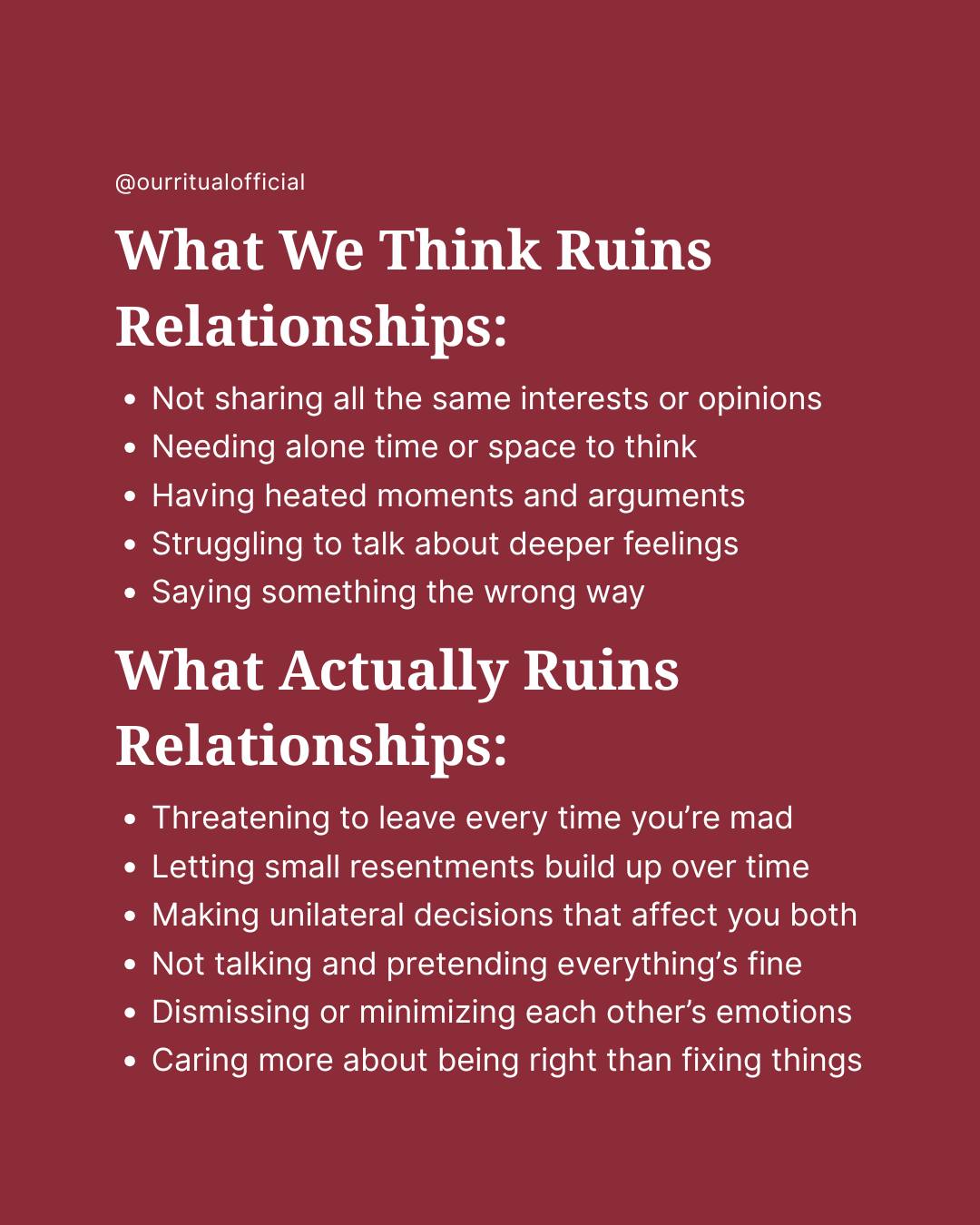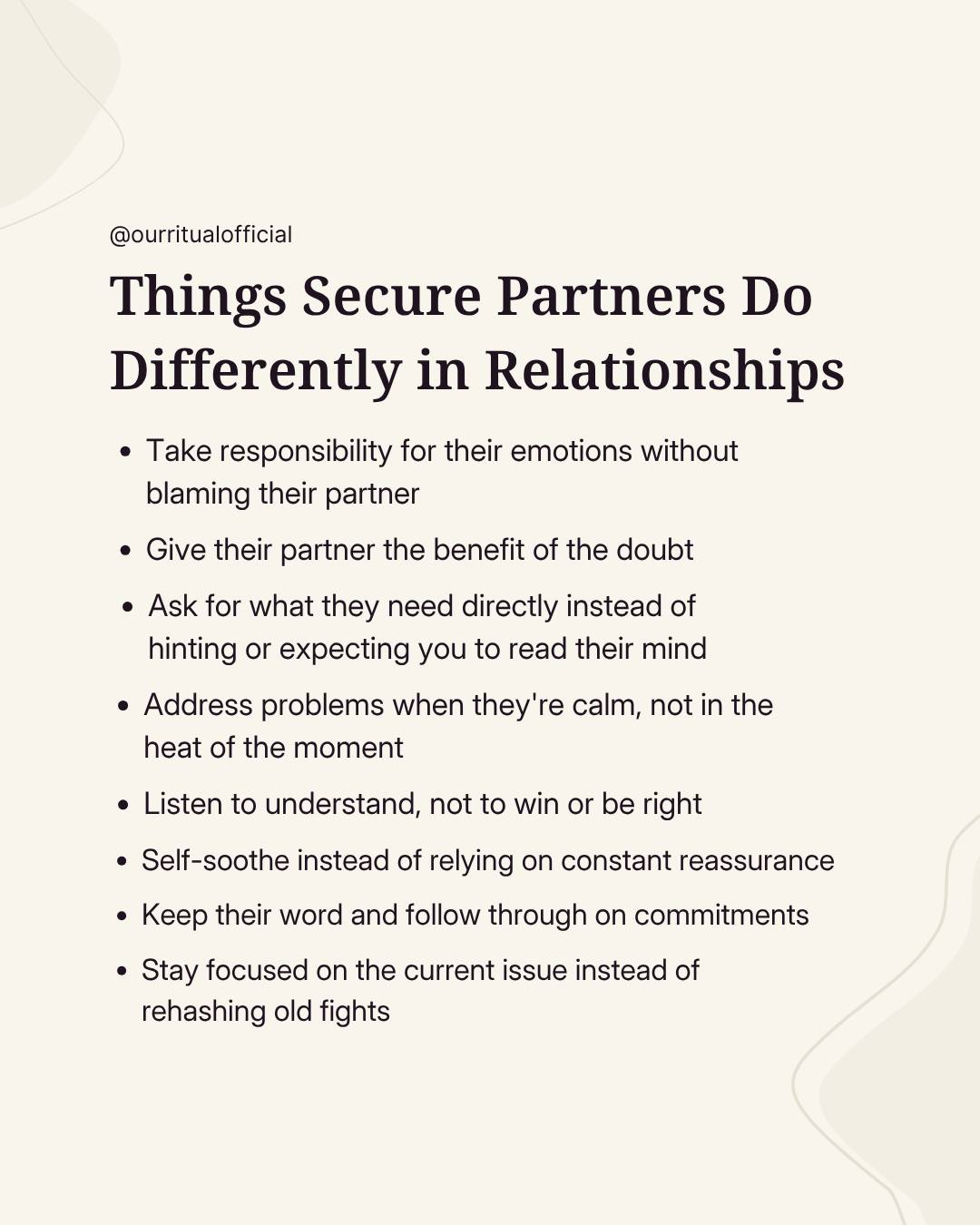How to Start Couples Therapy: A Beginner's Guide
Starting couples therapy can feel like a big step—but it doesn’t have to be overwhelming. Whether you're facing challenges or simply want to strengthen your connection, knowing what to expect can make the process smoother and more effective. Here are a few things to keep in mind before getting started:
- Start Early: Address problems before they escalate. Therapy equips you with tools for better communication and conflict resolution.
- Flexible Options: Choose between in-person, virtual, or hybrid sessions. Online platforms are often more affordable and convenient.
- Set Clear Goals: Reflect on your relationship patterns and establish shared objectives before starting therapy.
- Overcome Misconceptions: Seeking help is a sign of commitment, not failure. Therapists provide a neutral space to navigate challenges.
- Affordable Choices: Costs range from $65–$300 per session, with online options often being more budget-friendly.
Ready to strengthen your relationship? Let’s dive into how to make the most of couples therapy.
Preparing for Your Relationship Support Journey
Getting ready for relationship support starts with open and honest discussions about both your shared and individual goals. This preparation lays the groundwork for more productive sessions.
Setting Shared Goals and Expectations
Before meeting with a relationship professional, take time to clarify your personal aspirations. Understanding what each of you hopes to achieve allows you to align your goals and create a shared vision for your journey together.
Start by reflecting on your personal values and what you want to gain from the experience. Once you’ve done this individually, come together to pinpoint areas where your goals overlap. From there, you can craft objectives that address both of your needs and keep you motivated.
The S.M.A.R.T. framework is a great way to structure your goals: Specific, Measurable, Attainable, Relevant, and Time-bound. For instance, instead of saying, "We want to communicate better", try something like, "For the next three months, we’ll make coffee together every Saturday morning and talk about something other than work or chores."
Break your goals into short-term and long-term objectives. Maybe your immediate focus is on managing conflicts more calmly, while your long-term vision involves planning a life together. Be flexible - your goals may shift as you grow and evolve as a couple.
Understanding Your Relationship Patterns
Before your first session, take time to identify patterns in your relationship. Recurring issues like finances, chores, intimacy, or communication may point to deeper underlying challenges.
Ask yourself: How do I contribute to our relationship, both positively and negatively? What are my strengths as a partner, and where could I improve? This self-reflection isn’t about assigning blame but to better understand what’s going on.
Your family background can significantly influence how you navigate relationships. The behaviors you observed growing up - whether in handling conflict, showing affection, or making decisions - can shape your current patterns. Recognizing these influences can help you understand why certain situations might trigger strong emotions.
With that awareness, you can start thinking about what a supportive and emotionally safe relationship looks like for both of you. Consider which strategies might help you manage disagreements more effectively and how you could improve your communication. These insights will guide you in choosing the right support approach.
Addressing Fears and Misconceptions
Many couples hesitate to seek support due to fears of vulnerability, losing control, or concerns about cost, time, or having to share every detail.
In reality, relationship professionals are there to provide an objective, supportive environment. They don’t take over your decisions - they help you and your partner better understand and manage your emotions. Many professionals now offer accessible, solution-focused options that fit a variety of needs.
Seeking support is not a sign of failure. It’s a proactive step toward strengthening your relationship. The goal is to work together to understand and improve both the challenges and the strengths in your partnership.
Keep in mind that meaningful progress takes time and effort. It’s not a quick fix, but a process that requires patience and a willingness to adapt. Setting realistic expectations can help you stay motivated, even when the work feels difficult.
With your goals in place and a better understanding of your relationship patterns, you’ll be ready to explore support options that align with your needs.
Finding the Right Support Option for Your Needs
Once you’ve laid the groundwork, the next step is choosing the right kind of support to help your relationship grow. Whether you prefer meeting face-to-face, connecting virtually, or combining both, there are plenty of options to fit your needs.
Comparing Platforms and Experts
The format you choose should align with your lifestyle and relationship goals. Interestingly, about 70% of mental health visits now happen online. About 38% prefer in-person sessions, while 35% would prefer to meet virtually. [8].
In-person sessions offer a focused environment away from everyday distractions, making it easier to connect with your partner. These sessions also allow therapists to pick up on nonverbal cues that can reveal underlying dynamics. However, scheduling and travel can sometimes limit your options, especially if you’re looking for a specific expert.
Virtual platforms have made it easier than ever to get support, with flexibility that’s hard to beat. Virtual options are particularly helpful for couples in rural areas, those with tight work schedules, or partners who are often on the move.
Hybrid approaches blend the best of both worlds. Some couples alternate between virtual and in-person sessions, while others use digital tools to supplement traditional therapy. This flexibility can make it easier to stay consistent and engaged.
For example, OurRitual offers weekly virtual sessions led by experts, lasting 20–40 minutes. These sessions include science-backed exercises and cost $32 per week for individuals or $52 per week for couples, making ongoing support more affordable.
When it comes to cost, in-person sessions often carry higher fees due to logistical factors, while many virtual platforms use subscription models that provide more predictable pricing and flexibility.
To find the right fit, take time to define your priorities and ask the right questions before committing.
Questions to Ask Before Choosing
Choosing the right support option starts with asking thoughtful questions that align with your relationship goals.
Begin by asking about the professional's philosophy and approach. Make sure their methods align with your goals. It’s also important to understand their experience - particularly if they’ve worked with couples who faced challenges similar to yours, like trust issues, intimacy concerns, or navigating blended families.
Here are some key questions to consider:
- What is your approach to couples counseling?
- Do you have experience with challenges like trust, intimacy, or blended family dynamics?
- How do you handle conflict during sessions?
- What is your availability, and how often do you typically meet?
- How do you track progress throughout the process?
Finally, clarify billing policies, cancellation terms, and payment options. Knowing the financial details upfront will help you plan better.
Keep in mind, finding the perfect match may take some time. Many platforms offer initial consultations or trial sessions to help you better understand compatibility.
Making the Most of Your Sessions
To get the best out of your sessions, it’s essential to prepare ahead of time, stay engaged during discussions, and practice the skills you learn in between meetings.
Tips for a Successful First Session
The first session can set the tone for everything that follows, so it’s worth putting in the effort to make it count. Start by coming prepared with clear goals and intentions. Take time beforehand to discuss what you and your partner hope to achieve and any specific issues you’d like to address.
In your first session, try using validation exercises to set a positive tone. Acknowledge your partner’s emotions so they feel understood and safe - this helps build the trust you’ll need for deeper, more meaningful conversations as therapy progresses.
Don’t forget to highlight the positive aspects of your relationship alongside the challenges. Balancing discussions this way helps set a constructive tone for future sessions.
Once you’ve laid this groundwork, you can build on it with practical tools and exercises.
Tools and Exercises to Support Progress
The real growth happens between sessions, and having the right tools can make all the difference. Here are a few simple but effective practices:
- Mirroring exercises: In this practice, one partner speaks while the other listens and then summarizes what they heard to confirm understanding. This helps clear up miscommunications and strengthens empathy.
- Daily gratitude practices: Write down three specific things you appreciate about your partner each day and share them in person. Over time, this can shift the tone of your interactions
- Schedule a weekly check-in: Set aside 30 to 60 minutes of uninterrupted time to share feelings and discuss needs. Turn off your phones and give each other your full attention.
For those using platforms like OurRitual, digital exercises can complement your sessions. These guided activities reinforce the communication techniques covered in your expert-led sessions.
The Importance of Consistency and Practice
Consistency is the secret to lasting progress. Don’t wait for the "perfect" moment to apply what you’ve learned.
Tracking your progress can also be incredibly helpful. Write down what works and what doesn’t. This not only helps you identify patterns but also allows you to celebrate small wins along the way.
Even when progress feels slow, stay committed. By integrating these practices into your daily life, you can strengthen your relationship between sessions.
Couples who view relationship-building as an ongoing process rather than a quick fix tend to see the most significant improvements. Regular practice, open communication, and a commitment to applying new skills can create momentum that lasts well beyond your formal sessions.
Costs, Scheduling, and Privacy Considerations
When it comes to relationship support, understanding the practical details - like costs, scheduling, and privacy - can make planning much easier. Here's a closer look at what to expect.
Costs and Plan Options
The cost of relationship support can vary widely depending on the method you choose. Traditional, in-person therapy sessions usually cost between $75 and $300 per session, with most couples paying around $100 to $150 out-of-pocket if insurance doesn’t apply. Insurance coverage is rare unless one partner has a diagnosed mental health condition, but when it does apply, copays typically range from $20 to $50 per session.
Online platforms, however, often provide more budget-friendly options. OurRitual offers more affordable pricing, with individual support at $32 per week and couple sessions at $52 per week. These weekly plans often come with added benefits, like additional resources and tools to use outside of scheduled sessions.
Scheduling and Flexibility
Finding time for relationship support can be a challenge, especially for busy couples. Online platforms often shine in this area, offering evening and weekend appointments. Many services also provide various formats - like video calls, audio-only sessions, or live chat - to fit different preferences and schedules. Some even allow partners to join sessions from separate locations, which is a great option for long-distance couples or those who travel frequently.
Subscription-based services often include additional perks, like asynchronous messaging between sessions. This means you can ask questions or share thoughts whenever they arise, without waiting for the next appointment. OurRitual, for example, combines structured weekly sessions (20 minutes for individuals, 40 minutes for couples) with ongoing access to digital exercises and tools. This approach keeps the time commitment manageable while maintaining steady progress. Many couples start with weekly sessions and gradually reduce frequency as they strengthen their communication skills.
With the logistics covered, it’s worth remembering why taking that first step can be so powerful.
Conclusion: Taking the First Step Towards Growth
Supporting your relationship might feel like a big leap, but it starts with small, intentional steps. Acknowledge the need for help, have an honest conversation with your partner, find a professional who aligns with your needs, and commit to the journey.
Procrastination only makes problems harder to untangle. Research from Dr. Gottman reveals that patterns like criticism, contempt, defensiveness, and stonewalling can predict the end of a relationship with over 90% accuracy. [7] Addressing these issues early can stop them from taking hold and help you develop healthier communication habits. This urgency has fueled the rise of digital tools designed to make relationship support more accessible.
Today’s digital platforms provide a flexible and approachable way to seek help. With interactive exercises and tools, these platforms empower couples to reduce relationship anxiety quickly. The beauty of these platforms lies in their flexibility - you can work individually or as a couple, fit sessions into a busy schedule, and practice new skills between meetings.
Whether you opt for traditional face-to-face therapy or explore digital alternatives, the key is to take that first step. Every action, from an open conversation to choosing the right kind of support, lays the foundation for lasting growth. Strong relationships don’t happen by accident - they require effort, time, and the right tools. By investing in your relationship today, you’re setting the stage for a stronger, more connected future.
FAQs
How can we find the right type of relationship support that works for us?
To figure out the best kind of relationship support, begin by pinpointing the goals you and your partner share - whether that's enhancing communication or deepening your emotional bond. Techniques like reflective listening or methods such as the Gottman Method provide strategies tailored to different needs. Consider what aligns with your relationship's unique dynamics and daily life, and reach out to a professional if you’d like guidance in finding the most effective approach for your situation.
What are some common myths about starting couples sessions, and how can we move past them?
Many assume that couples sessions are reserved for relationships in turmoil, that they drag on endlessly, or that the professional will favor one partner over the other. In truth, these sessions can be a powerful tool to deepen your relationship, whether you're navigating challenges or simply aiming to grow closer. You set the pace, and facilitators are skilled at staying neutral, prioritizing understanding and mutual progress.
Instead of viewing these sessions through the lens of misconceptions, see them as a shared opportunity to enhance communication and connection. Seeking support isn’t about admitting defeat - it’s a meaningful step toward investing in and strengthening your relationship.













